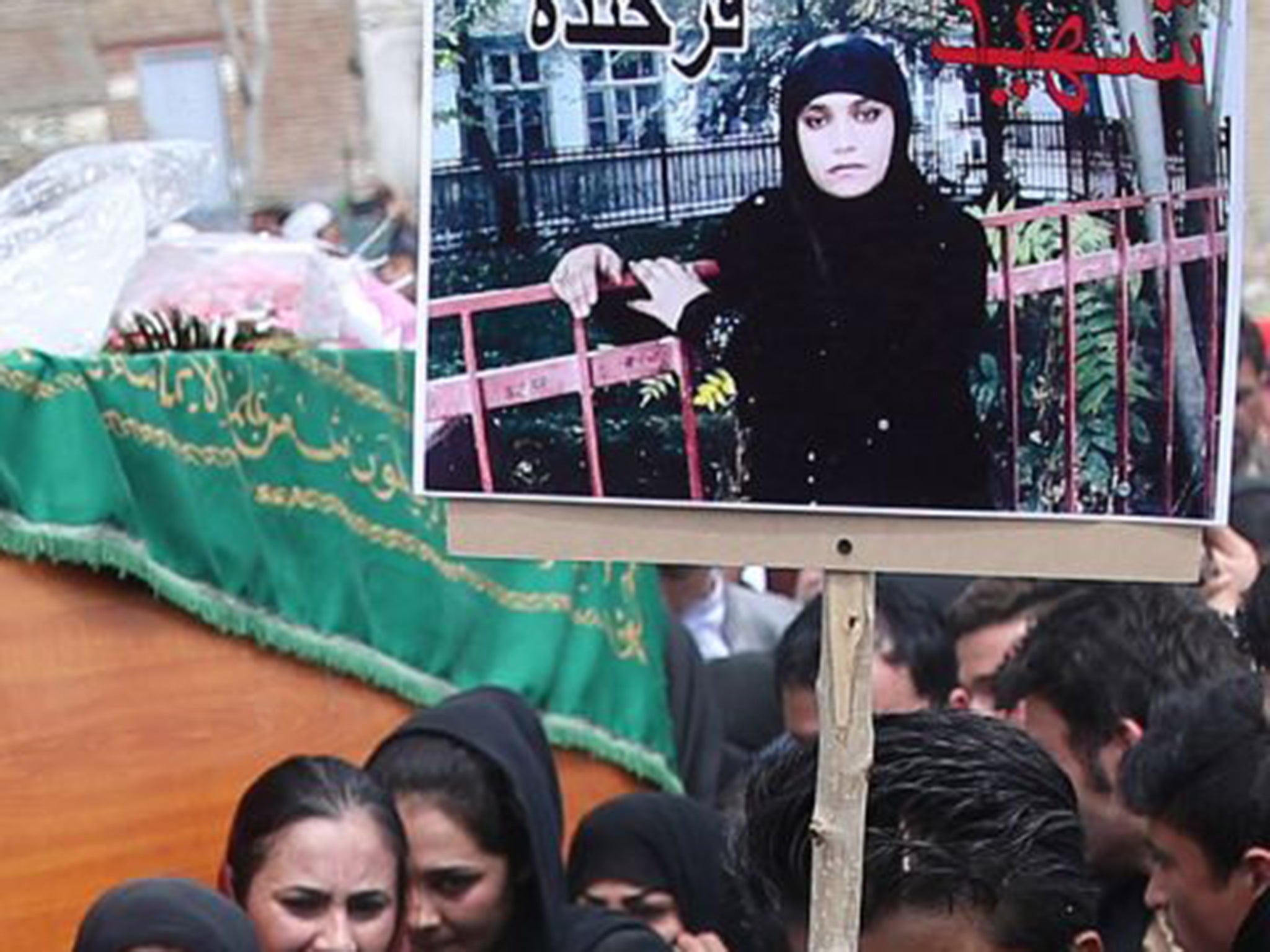Farkhunda Malikzada: Afghan men convicted of taking part in mob killing of woman at Kabul shrine have death sentences quashed
The four men instead get 10 and 20 years in prison - to the outraged of the victim's family

An Afghan court has overturned the death sentences for four men convicted of taking part in the mob killing of a woman outside a Kabul shrine.
Three of the men convicted of the murder of Farkhunda Malikzada in March were instead given 20-year sentences, and the fourth was sentenced to 10 years by the appeals court judge Abdul Nasir Murid.
The ruling was made in a closed-door hearing and first reported by the independent Tolo TV. The court reportedly acquitted the peddler at the shrine who allegedly incited the mob by falsely accusing Ms Malikzada of burning a Koran.
Word of the court’s decision outraged her family, which has no legal representation in the case and had not been informed of the change in sentencing. “The verdict of 20 years means they will be released. We want the earlier decision for the death penalty,” said Ms Malikzada’s brother, Najibullah, 37.
Politicians and activists also criticised the decision, saying the court had bowed to the conservative religious establishment and failed to uphold the rule of law.
“This is against the constitution. The courts should be open to the public, and this closed-door hearing undermines the credibility of the sentences,” said Shukria Barakzai, a politician and women’s rights advocate.
She added: “Farkhunda’s case does not just belong to her family any more, it belongs to all the people of Afghanistan who need assurance that they can have confidence in the law.”
Read more:
Farkhunda Malikzada's family afraid to leave house as killers are released
The mob killing led to calls for reform of the judicial system – long plagued by corruption, partisanship and incompetence – and stronger protection for women from violence.
After the peddler at the Shah-Du Shamshira shrine falsely accused Ms Malikzada of burning a Koran, a mob attacked her as police watched. After punching, kicking and beating her with wooden planks, the crowd threw her from a roof, ran over her with a car and crushed her with a block of concrete. They then set her body alight on the bank of the Kabul River.
A makeshift shrine with a green flag of martyrdom was erected at the spot on the river bank where her body was dumped. The attack was filmed by many in the mob, and the footage widely distributed on social media.
At the murder trial, the four men were found guilty and sentenced to death. Charges against 18 men were dropped for lack of evidence, and eight others were sentenced to 16 years in prison. Of 19 policemen charged with dereliction of duty, eight were acquitted due to lack of evidence, and 11 were jailed for one year.
Last month, the appeals court upheld a decision to release 37 defendants ahead of their appeals.
Human rights activist Ramin Anwari said the government had given in to conservative clerics. “If these people are sentenced to death in a case that appears to hinge on the burning of a Koran, then people will think twice in future about taking such actions against people who act against religion – in which case rule of law will have won. They don’t want that,” he said.
AP
Subscribe to Independent Premium to bookmark this article
Want to bookmark your favourite articles and stories to read or reference later? Start your Independent Premium subscription today.

Join our commenting forum
Join thought-provoking conversations, follow other Independent readers and see their replies